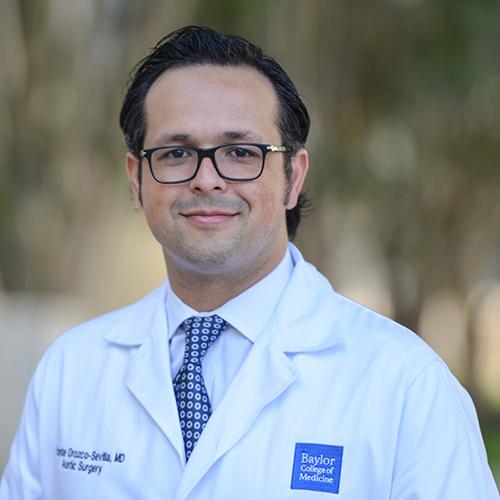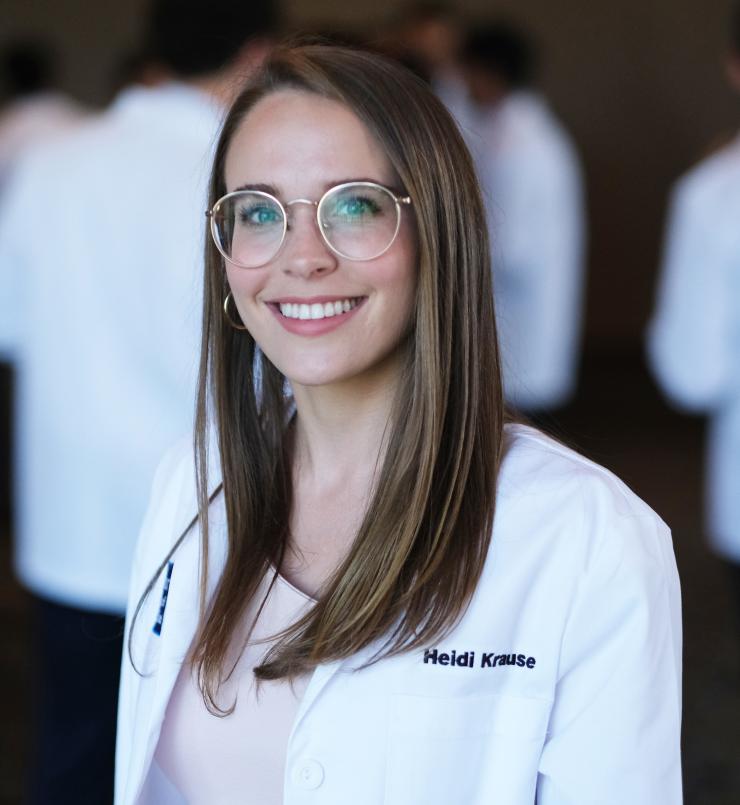Two Awarded Best Poster at 2021 CVRI Symposium
The Cardiovascular Research Institute at Baylor College of Medicine held its 8th annual Cardiovascular Research Institute Symposium April 7-8, 2021. The focus of the symposium was to highlight the innovated research being done in the field of cardiovascular research completed by faculty and trainees from across the Texas Medical Center.
This year’s symposium – which followed a virtual format – featured a national keynote speaker, Alan Daugherty, Ph.D., DSc, Gill Foundation Chair of Preventive Cardiology, director of the Saha Cardiovascular Research Center, chair of the Department of Physiology, and senior associate dean for research at the University of Kentucky College of Medicine. The two half days were filled with scientific lectures, poster presentations and awards.
Best Poster Award – Clinical Faculty

Dr. Vicente Orozco-Sevilla, assistant professor of surgery in the Division of Cardiothoracic Surgery, won Best Poster Award – Clinical Faculty. His project was titled, “Spinal cord deficit after 1114 extent II Thoracoabdominal aneurysm repairs.” Dr. Orozco-Sevilla found that spinal cord deficit (paraparesis of paraplegia) after a thoracoabdominal aneurysm repair has reduced late survival. The poster was co-authored by Dr. Joseph Coselli, professor, vice-chair, and chief in the Division of Cardiothoracic Surgery, Dr. Ourania Preventza, professor of surgery in the Division of Cardiothoracic Surgery, Dr. Scott A. LeMaire, professor of surgery in the Division of Cardiothoracic Surgery and vice-chair for research, Susan Y. Green, lead project manager in the Division of Cardiothoracic Surgery, and Ginger Etheridge, assistant coordinator for business operations in the Division of Cardiothoracic Surgery.
Best Poster Award – Clinical Student

Second-year medical student at Baylor College of Medicine, Heidi Krause won Best Poster Award – Clinical Student. Her project was titled, “A 23-year experience with the reversed elephant trunk technique for staged repair of extensive thoracic aortic aneurysm.” The reversed elephant trunk technique permits staged repair of extensive thoracic aortic aneurysm in patients whose distal aorta is symptomatic or disproportionately large compared with their proximal aorta. The poster was co-authored by Dr. Joseph Coselli, professor, vice-chair, and chief in the Division of Cardiothoracic Surgery, Susan Y. Green, lead project manager in the Division of Cardiothoracic Surgery, Qianzi Zhang, biostatistician, Hiruni S. Amarasekara, clinical research manager in the Division of Cardiothoracic surgery, Dr. Ourania Preventza, professor of surgery in the Division of Cardiothoracic Surgery, and Dr. Scott A. LeMaire, professor of surgery in the Division of Cardiothoracic Surgery and vice-chair for research.”










